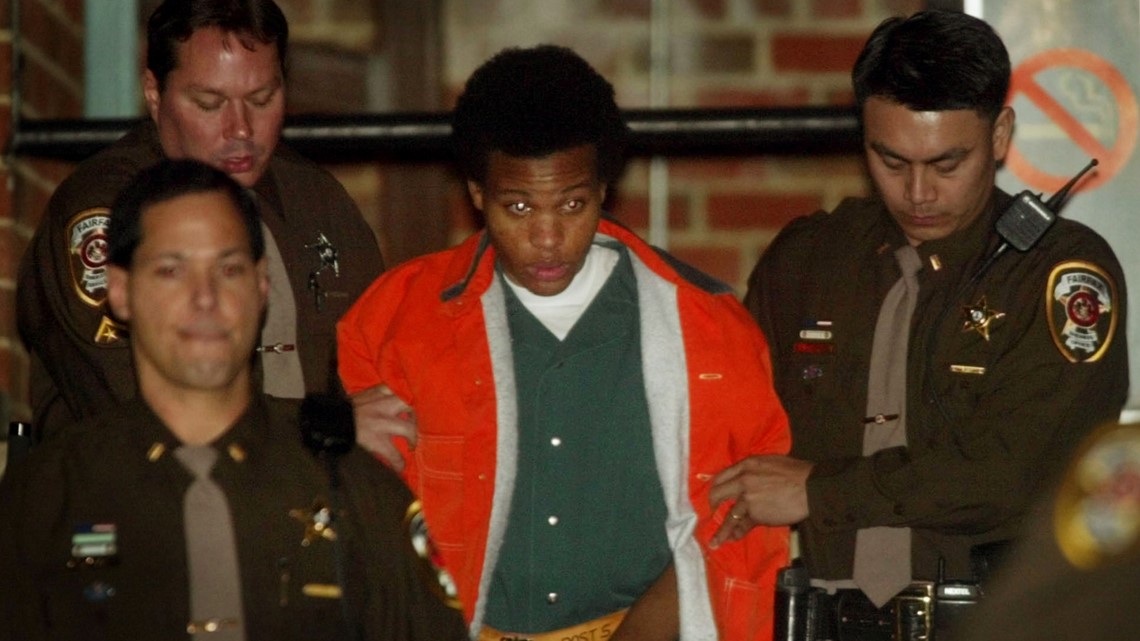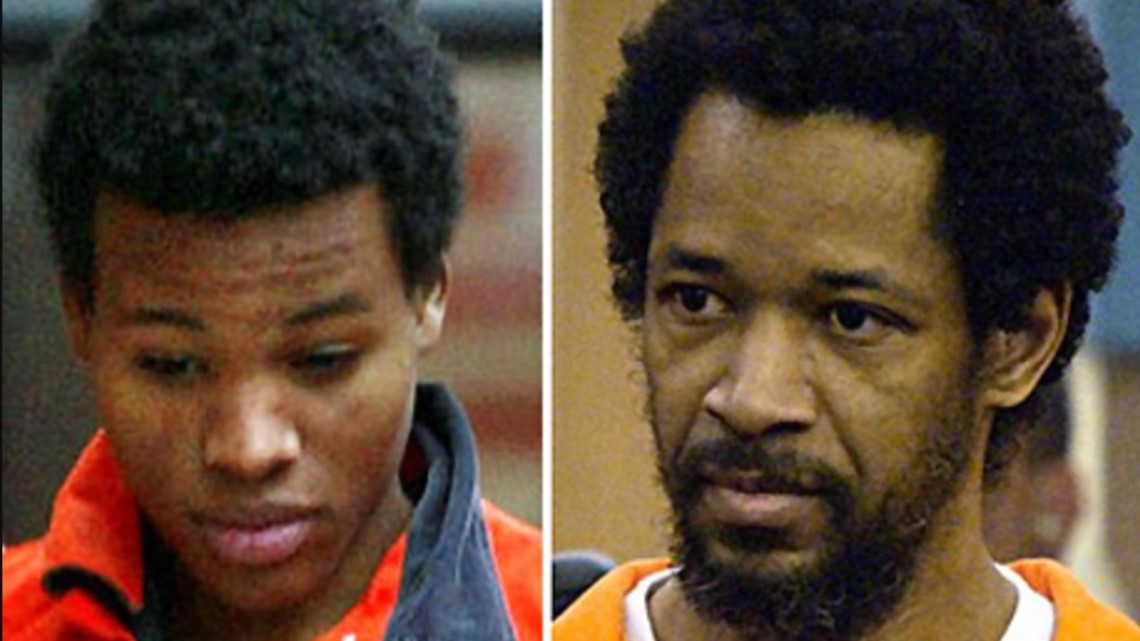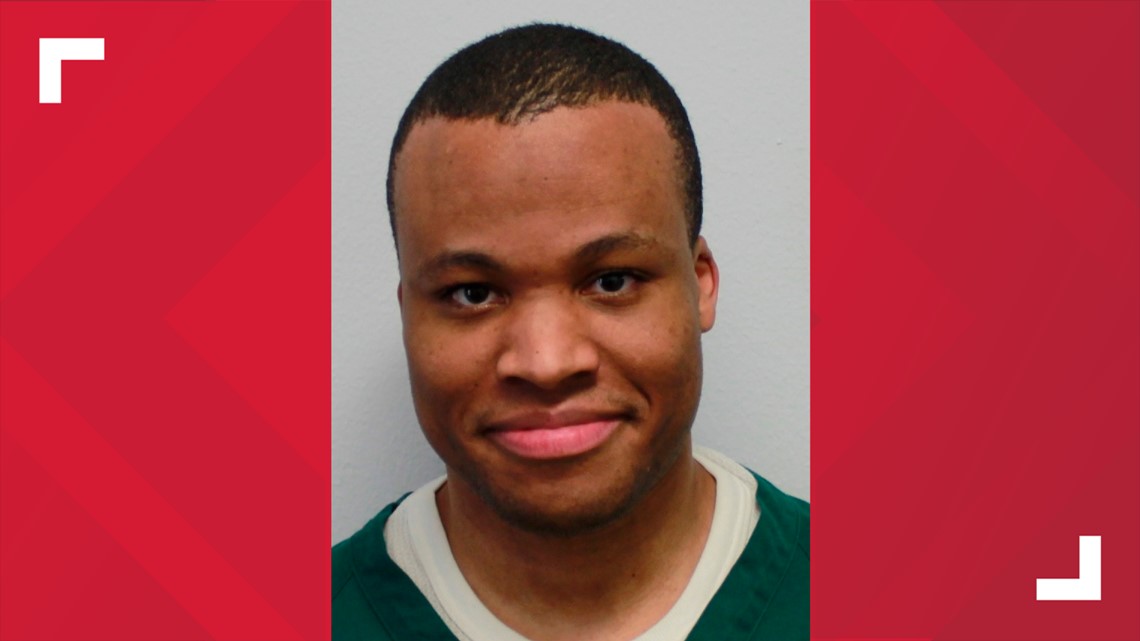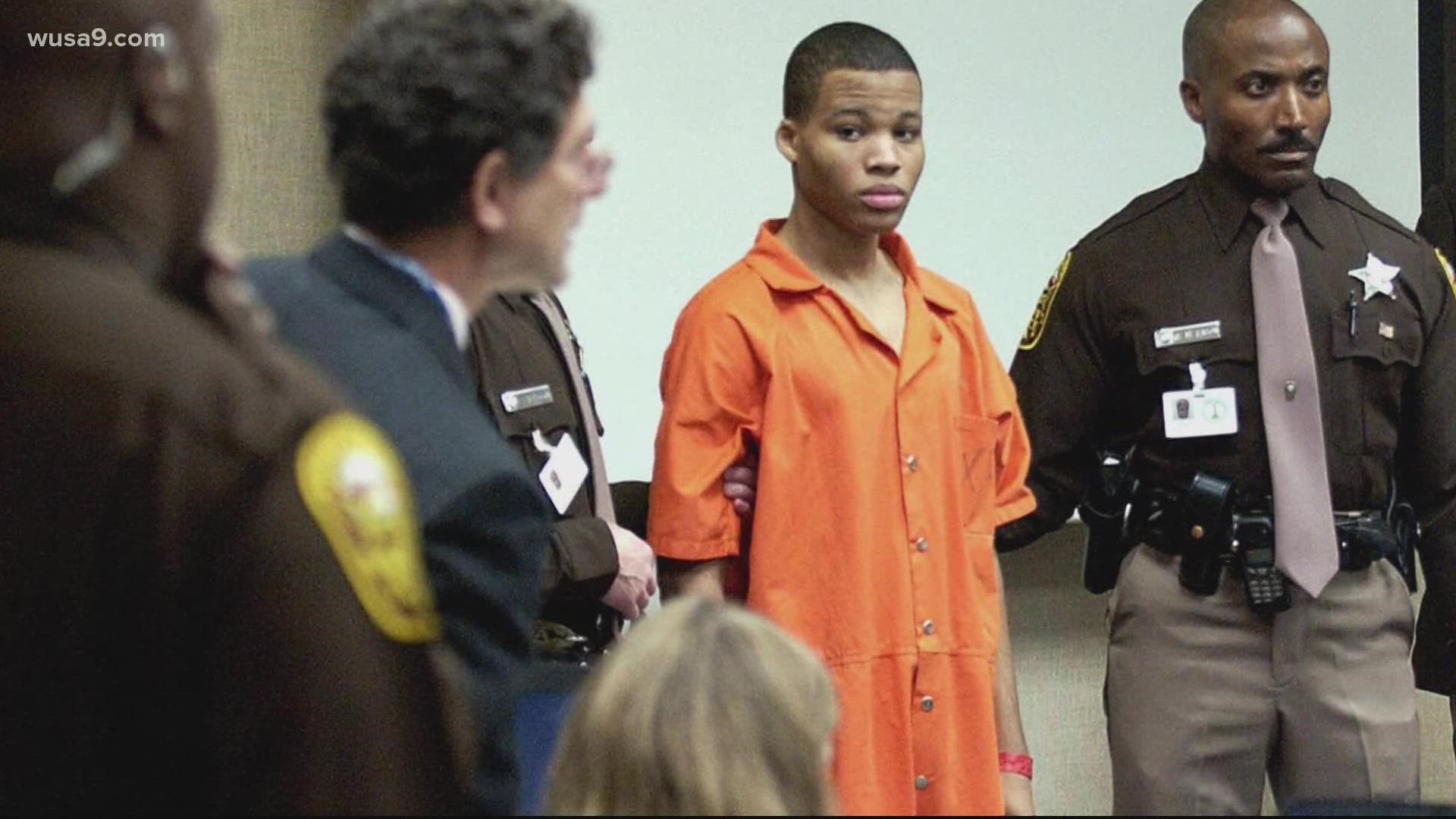BALTIMORE — Oral arguments begin in DC sniper Lee Boyd Malvo's quest to seek either sentencing relief or release under a Maryland law that applies to prisoners who were convicted as juveniles.
Malvo was 17 when he was convicted and sentenced to life in prison without parole for his role in the 2002 sniper spree that terrorized the D.C. region.
In 2012, a U.S. Supreme Court ruling found mandatory life sentences without parole for juvenile offenders violate the 8th Amendment and are unconstitutional. During videoconferenced oral arguments Feb. 8 in Maryland Supreme Court, Malvo's lawyers are expected to argue that his sentence of six life terms without parole violates this ruling.
Malvo's attorneys also may seek to take advantage of a recent Maryland law that lets prisoners who were convicted as juveniles seek release once they've served at least 20 years.
Malvo was a juvenile when he and John Allen Muhammad embarked on a killing spree that left 10 people dead and three wounded in Maryland, Virginia and the District of Columbia. Others were killed as the pair made their way to the D.C. region from Washington state. Muhammad was executed in 2009.




Malvo's case may have renewed standing after Maryland's General Assembly abolished life without parole for youths, overriding a veto by Gov. Larry Hogan. Virginia passed similar legislation in 2020. That change prompted Malvo to drop a legal appeal that had gone to the Supreme Court to determine if his life sentence should be rescinded.
The National Association of Criminal Defense Lawyers has filed an amicus brief in the case in support of Malvo, asserting "the issues presented in this case are of paramount importance to criminal defense attorneys throughout the country and the clients they represent." It claims that Maryland's juvenile offender act actually constitutionally contradicts the U.S. Supreme Court ruling and he should be resentenced to be afforded the relief from the 2012 ruling.
The NACDL outlined potential remedies if Malvo's sentence is found to be unconstitutional in light of the U.S. Supreme Court's 2012 ruling, Miller v. Alabama. If this ruling is found to have been violated, states across the country either have made juvenile offenders eligible for parole or have ordered resentencings.
The criminal defense lawyer's group further asserts that Maryland’s Juvenile Restoration Act (JUVRA) is constitutionally inadequate to cure sentences that violate the 2012 Miller ruling, saying that juvenile life-without-parole sentences that violate Miller should simply be “void” as a matter of law.


JUVRA does not void a sentence; rather it lets a juvenile offender who has been imprisoned for at least 20 years file a court motion up to three times in an attempt to receive a reduced sentence. The amicus brief from the National Association of Criminal Defense Lawyers states, "Malvo’s sentences violate the Eighth Amendment, and JUVRA does not cure that constitutional violation. He must be resentenced to remedy these violations."
A key factor in the Miller ruling is the consideration of the development of a juvenile offender's brain and the potential for rehabilitation. The Supreme Court considered discoveries in neuroscience and declared "children are different" when it comes to determining constitutional sentencing law.
The ruling determined that life-without-parole sentences are unconstitutional for those juvenile offenders who are not permanently incorrigible.
WATCH: DC sniper survivor says Malvo shouldn't get out of prison anytime soon
Twenty years ago this year, The DC snipers terrorized communities in Maryland, Virginia and the District. Paul LaRuffa was shot multiple times and survived.

